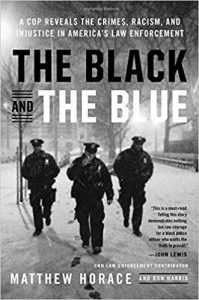Eye Opening Yet Flawed. From a standard sociological talking point side, this book is eye opening yet also perfectly in-line (almost within perfect lock-step, in fact) with current sociological understanding – or at least my own understanding of current sociological understanding. (And this, from a guy that *long ago* presented at a sociological conference as a college freshman – just to establish that I do in fact have a *modicum* of academic understanding here. 😉 ) In the forward, Michelle Alexander shows that despite the years, her own blinders and biases are still perfectly in place – but also sets the overall tone for the book. In short, this does for government controls outside the actual mass incarceration system what Alexander’s The New Jim Crow did for the mass incarceration system and what Radley Balko’s Rise of the Warrior Cop did for the actual history of police militarization and brutality in the US. Indeed, ultimately this is a book that belongs in the same libraries and conversations as those two magnum opuses as a definitive text on the issue that every single person in America needs to read. Yes, it is *that* powerful, even for someone who has read both of the aforementioned books, who has been an activist for quite some time, and know knows more about these issues than many, perhaps most, people currently talking about them in media (either professional or social).
Its critical flaws are similar to Alexanders’ own: it has a near laser focus on race as the root cause. Where this book gains the extra star above Alexander’s book is that key word “near”. Schenwar and Law do a commendable job of listing other leading causes of these issues – chiefly, being poor no matter the color of your skin – even while most often listing race as the most common cause. At that point, I’m more willing to call six of one/ half a dozen of the other, it is so well balanced here.
But arguably the biggest flaw of the book is that even while constantly preaching about the perils of government control systems, it still manages to advocate for *more*… government control systems, simply targeting other people. Even as it preaches community and alternatives to police, prison, and the various systems described in the book, it still ultimately demands ever more government programs rather than the true community Schenwar and Law claim to want. Rather than praising Anarchy and demanding a complete overthrow of the very government systems that cause the very problems they so accurately describe, they ultimately choose to love Big Brother even while asking him to be a little bit nicer.
And just as this ending is the ultimate tragedy of Orwell’s 1984, so too it is the ultimate tragedy of this otherwise stupendous polemic. Recommended.
This review of Prison By Any Other Name by Maya Schenwar and Victoria Law was originally written on June 16, 2020.

